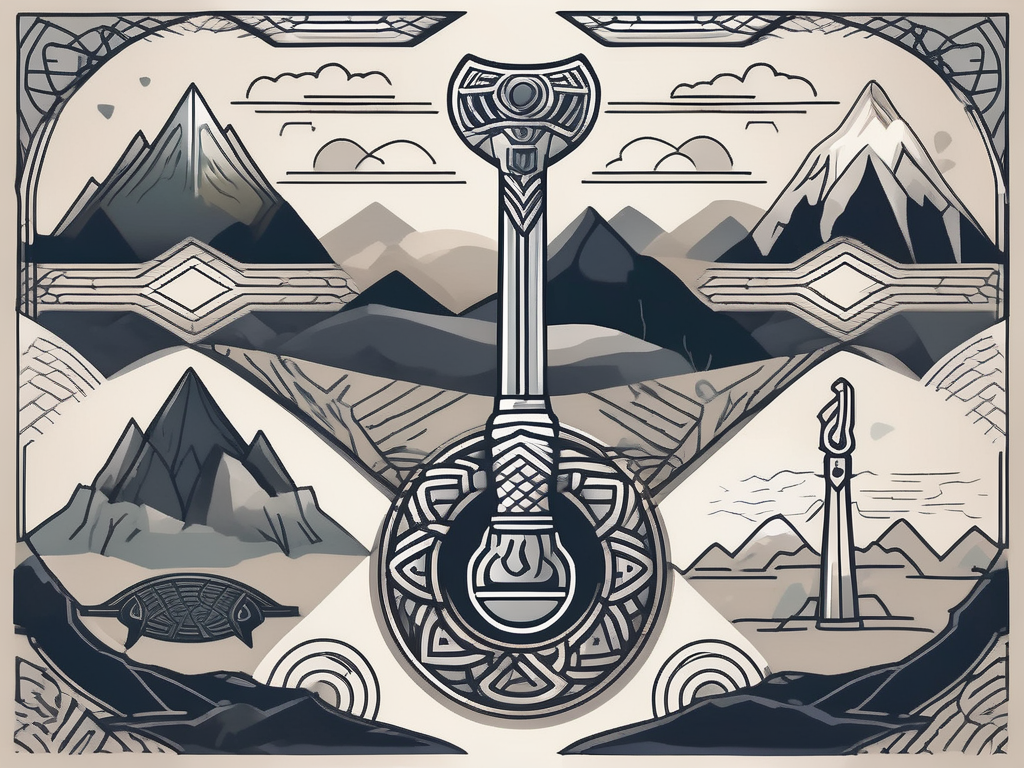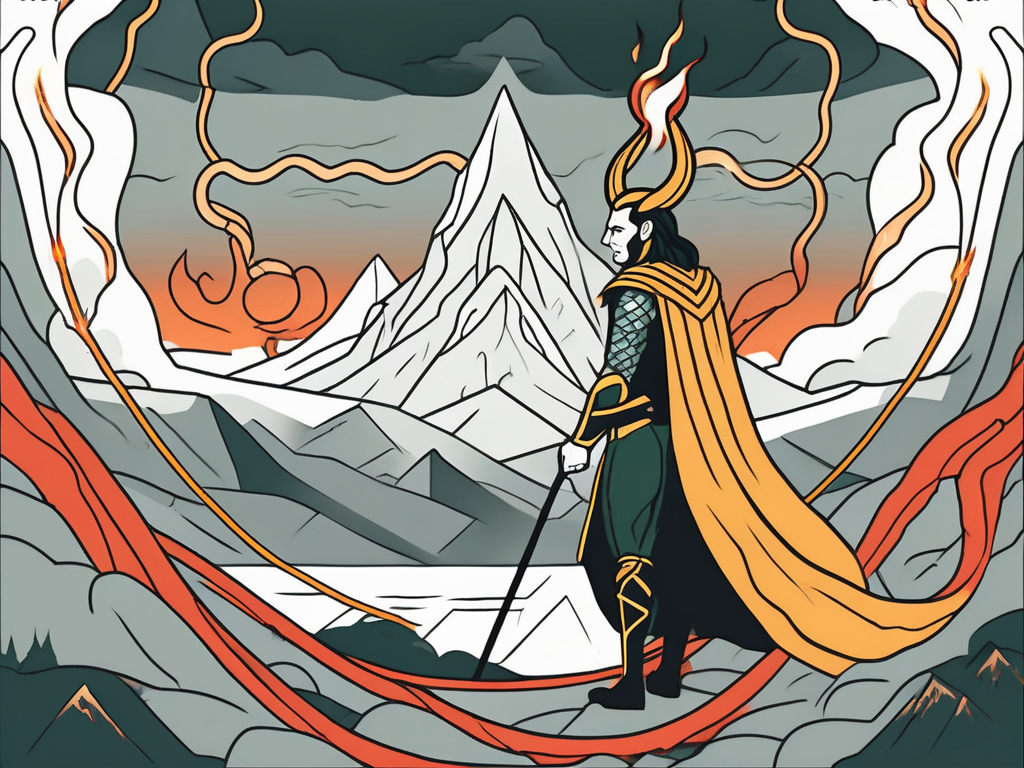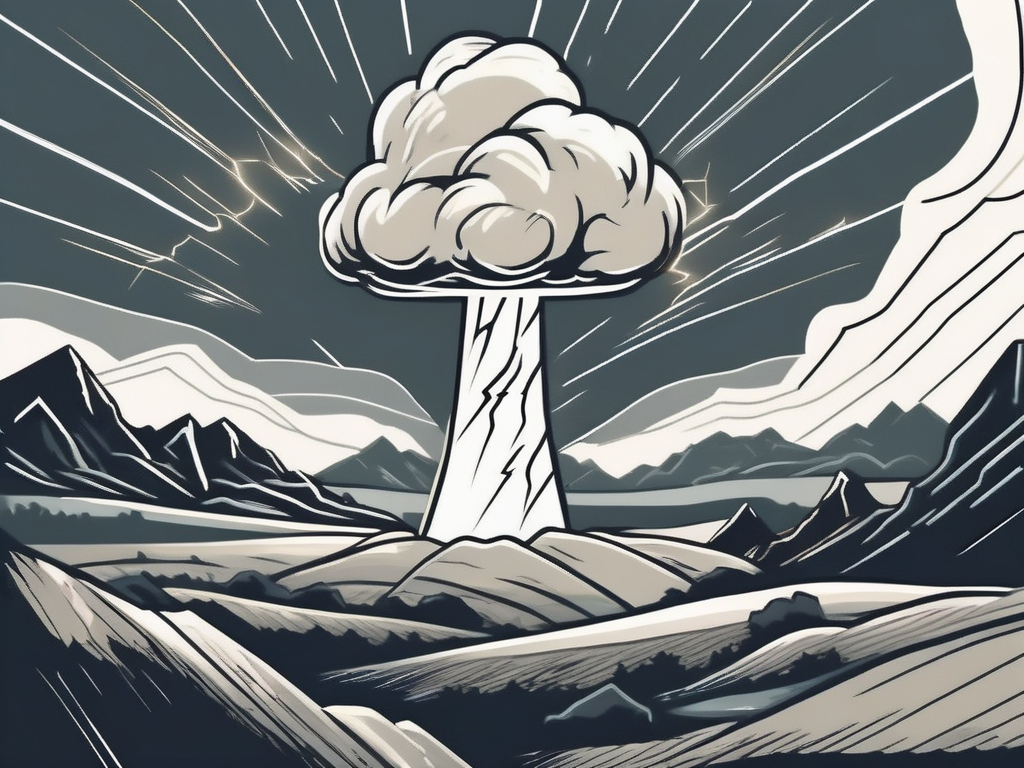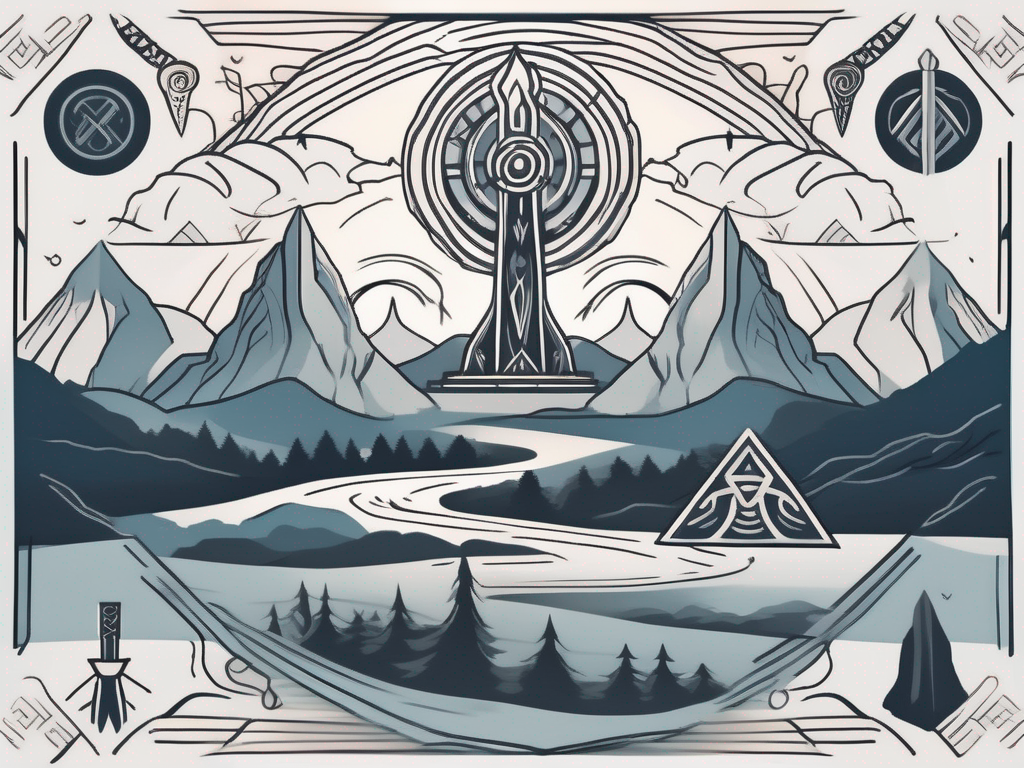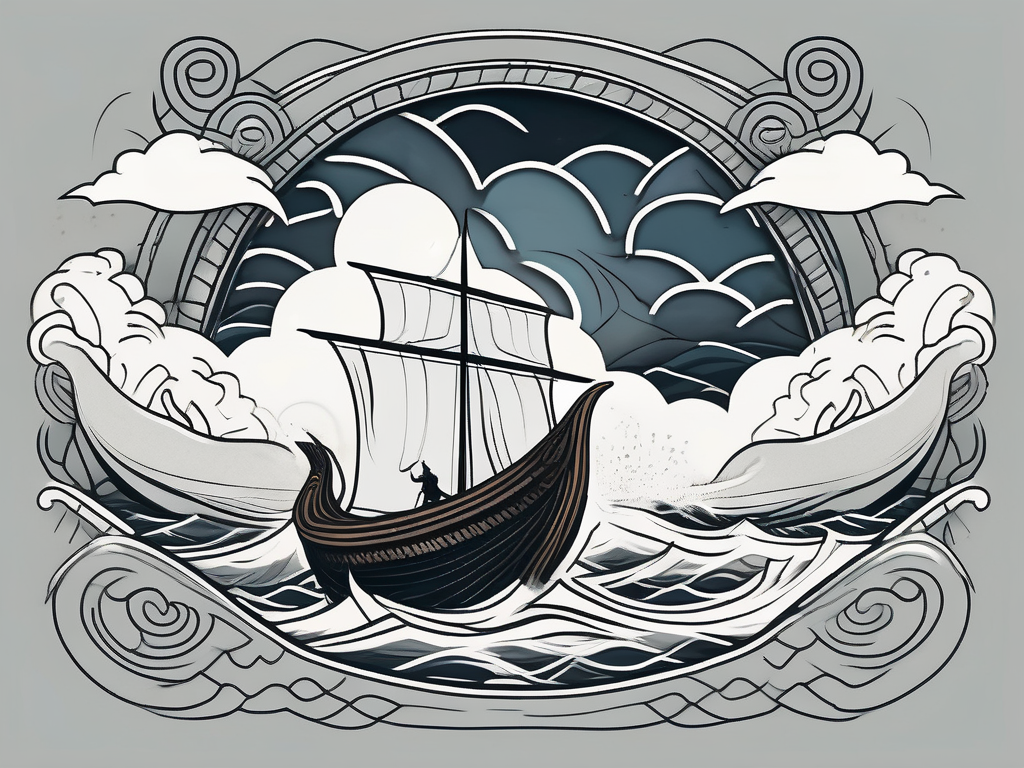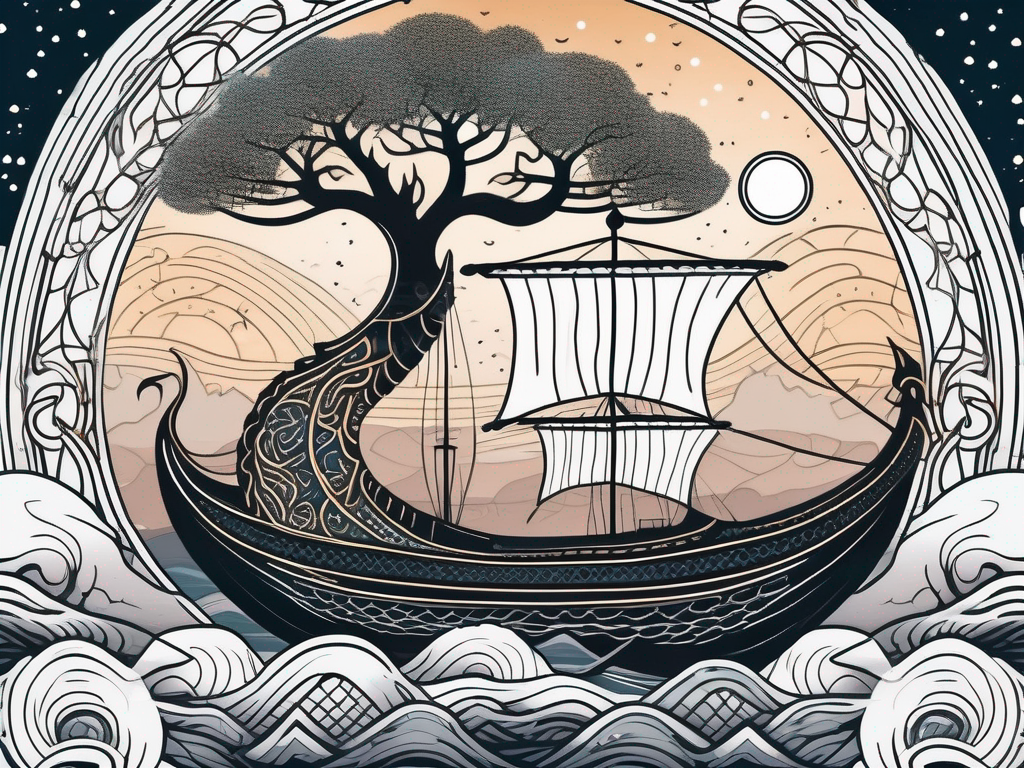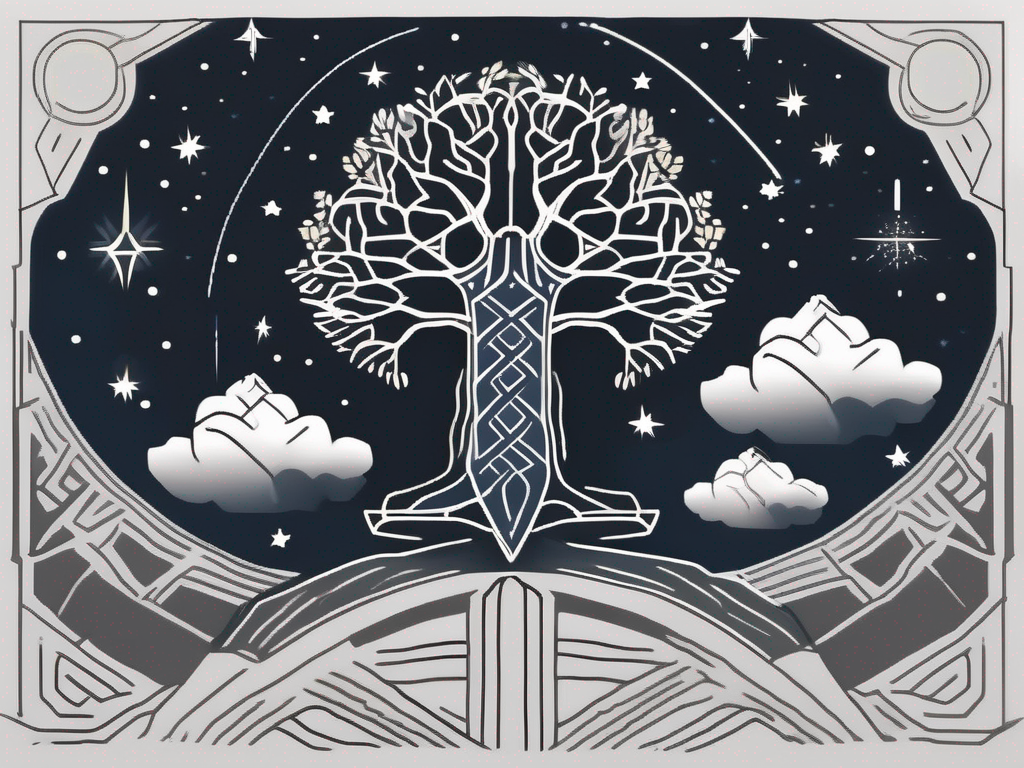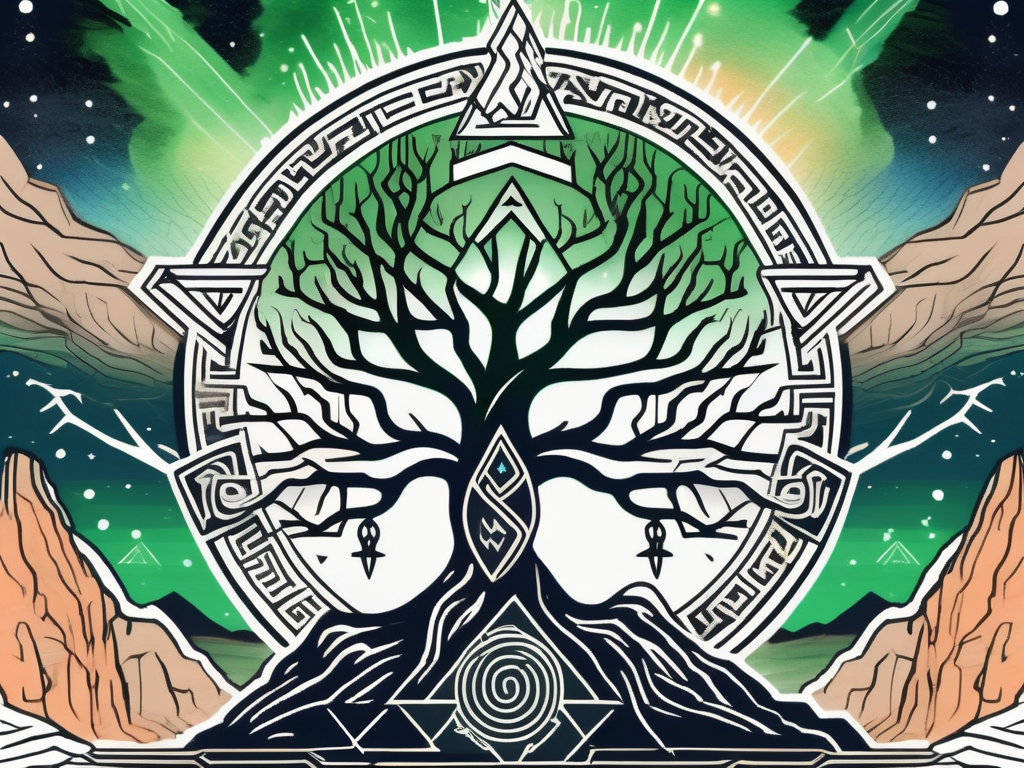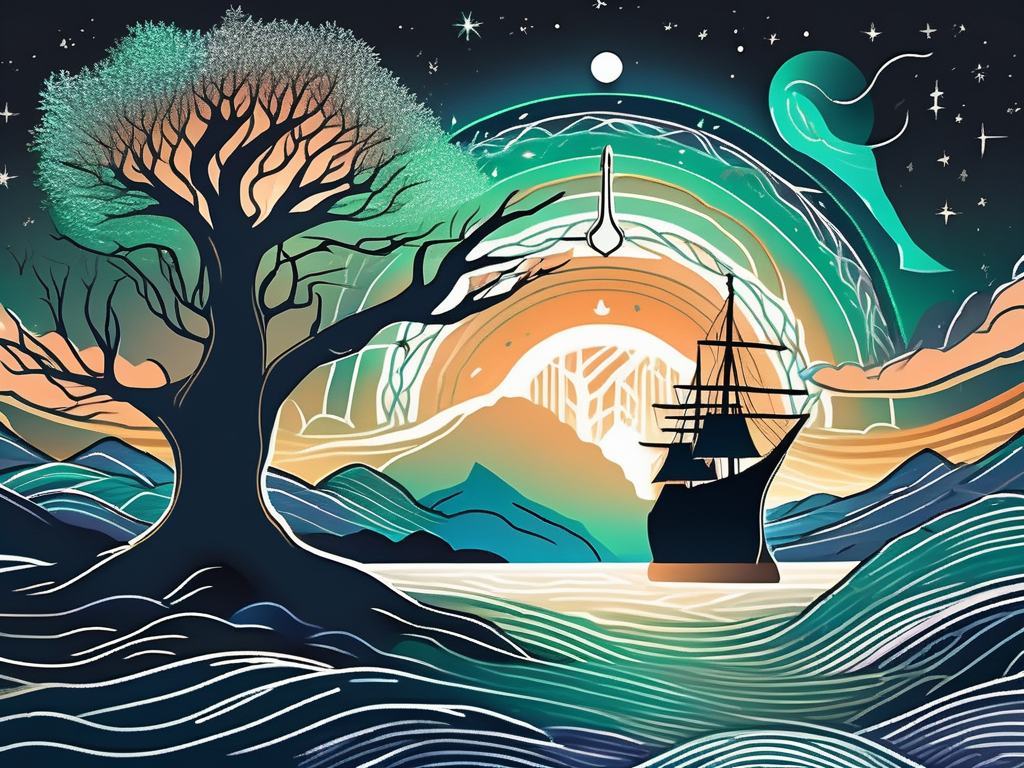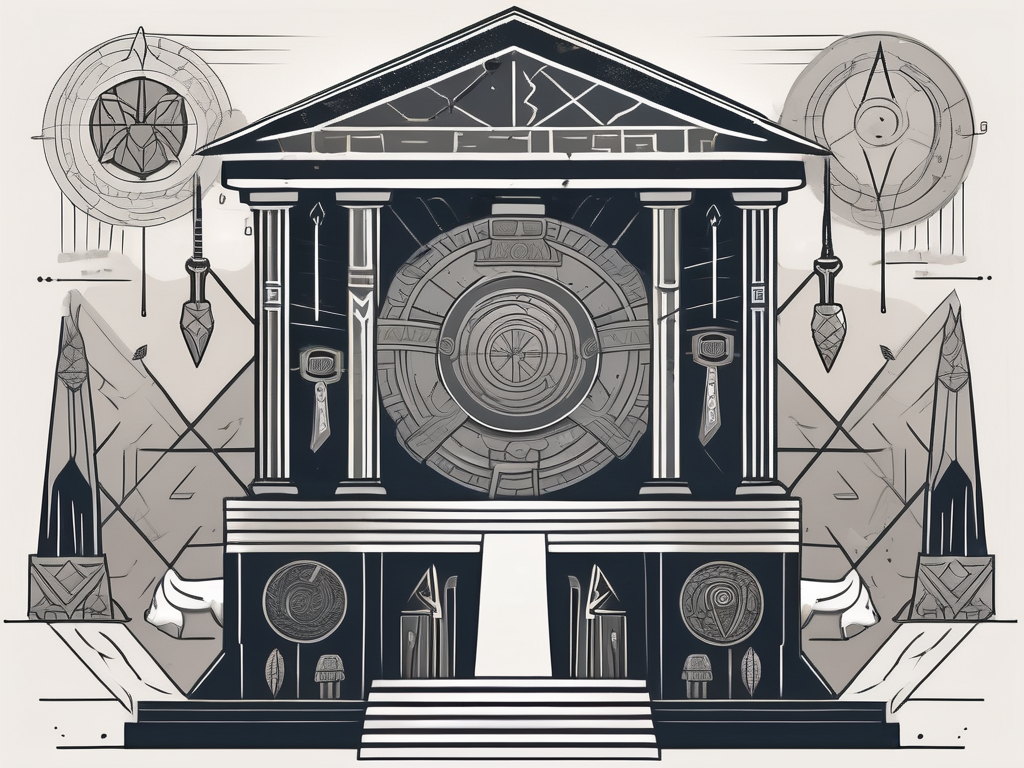Do you ever find yourself fascinated by mythology? The stories of ancient gods and goddesses, their powers and adventures, have captivated human imagination for centuries. One particularly intriguing pantheon is that of the Norse gods. From the mighty Thor to the cunning Loki, each god possesses unique qualities that make them both admirable and relatable.
Understanding Norse Mythology
Before we dive into discovering your Norse god persona, let’s take a moment to explore the rich world of Norse mythology. Originating from the ancient Vikings, Norse mythology is full of epic tales and mystical creatures. It is a complex system of beliefs that revolves around gods, goddesses, giants, and other mythical beings.
The ancient Norse people held a deep reverence for their mythology, viewing it as an integral part of their cultural identity. The stories and legends passed down through generations served as a way to connect with their ancestors and understand their place in the world.
One of the most fascinating aspects of Norse mythology is its intricate cosmology. The Norse believed in a multilayered universe consisting of nine realms, each with its own unique characteristics and inhabitants. From Asgard, the realm of the gods, to Jotunheim, the land of the giants, these realms formed a complex tapestry of interconnected worlds.
The Importance of Norse Mythology
Norse mythology played a crucial role in the lives of the ancient Norse people. It served as a way to explain the natural phenomena they encountered and to understand the world around them. For example, thunderstorms were believed to be the result of Thor, the god of thunder, wielding his mighty hammer, Mjolnir.
Additionally, Norse mythology provided the ancient Norse people with a code of ethics and values to live by. The gods and goddesses embodied certain virtues and qualities that were admired and emulated. For instance, Odin, the wise and all-knowing god, represented wisdom, knowledge, and sacrifice.
Furthermore, Norse mythology offered a sense of hope and guidance in times of adversity. The tales of heroism, bravery, and triumph over adversity inspired the Norse people to persevere in the face of challenges. The story of Ragnarok, the apocalyptic battle between the gods and giants, taught them the importance of courage and resilience.
Key Figures in Norse Mythology
Within the vast realm of Norse mythology, there are several important figures that take center stage. From wise Odin, the ruler of the gods, to mischievous Loki, these deities possess distinctive characteristics and roles within the pantheon.
Odin, often referred to as the Allfather, is the chief god of Norse mythology. He is associated with wisdom, knowledge, poetry, and war. Odin is depicted as a wise old man with a long white beard, wearing a wide-brimmed hat and carrying a spear named Gungnir.
Loki, on the other hand, is a complex and enigmatic figure. Known for his cunning and trickery, Loki often finds himself at odds with the other gods. Despite his mischievous nature, Loki plays a vital role in many of the Norse myths, often acting as a catalyst for change and transformation.
Other notable figures in Norse mythology include Thor, the god of thunder and protector of mankind; Freya, the goddess of love, beauty, and fertility; and Freyr, the god of peace and prosperity. Each deity brings their own unique qualities and stories to the rich tapestry of Norse mythology.
The Pantheon of Norse Gods
Now that we have a basic understanding of Norse mythology, let’s explore the pantheon of Norse gods. Divided into two main groups, the Aesir and the Vanir, these gods personify different aspects of the world and human existence.
The Aesir gods, associated with the sky, war, and wisdom, form a powerful and influential group within the Norse pantheon. Led by Odin, the Allfather and ruler of Asgard, they represent power, leadership, and divine knowledge. Odin, with his one eye and his ravens Huginn and Muninn, embodies the pursuit of wisdom and the ability to see beyond the physical realm.
Thor, the mighty god of thunder and son of Odin, is one of the most well-known Aesir gods. With his powerful hammer Mjolnir, he protects the gods and humans from the forces of chaos and destruction. Known for his strength and bravery, Thor is often depicted as a fierce warrior, wielding his hammer to defend Asgard and Midgard, the realm of humans.
Another notable Aesir goddess is Freyja, the enchanting goddess of love and beauty. As the ruler of the heavenly realm of Fólkvangr, she receives half of the warriors who die in battle, while the other half goes to Odin’s hall, Valhalla. Freyja is associated with fertility, desire, and magic, and she possesses a powerful necklace called Brísingamen, which enhances her beauty and charm.
In contrast to the Aesir gods, the Vanir gods are connected to the earth and fertility. They embody the forces of nature, prosperity, and abundance. Njord, the god of the sea and winds, is a prominent member of the Vanir group. As the father of Freyr and Freyja, he governs the oceans and controls the winds, ensuring favorable conditions for seafarers and fishermen.
Freyr, the god of agriculture and prosperity, is another key figure among the Vanir gods. As the brother of Freyja and son of Njord, he is associated with fertility, abundance, and the bountiful harvest. Freyr is often depicted with his magical ship Skíðblaðnir and his powerful sword, which can fight on its own.
These are just a few examples of the gods within the Norse pantheon. Each god and goddess has their own unique characteristics, stories, and areas of influence. The pantheon is rich and diverse, reflecting the complex beliefs and values of the ancient Norse people.
Characteristics of Major Norse Gods
Now that we have a grasp of the Norse gods’ general roles, let’s delve deeper into some of the major deities and their defining characteristics.
Odin: The Allfather
Odin, also known as the Allfather, is the supreme deity in Norse mythology. He is associated with wisdom, magic, and war. Known for his one-eyed appearance and mastery of the runes, Odin embodies an insatiable thirst for knowledge and the pursuit of wisdom.
In addition to his role as the ruler of Asgard, Odin is also the god of poetry. He is often depicted as a wanderer, seeking inspiration from the world around him. It is said that Odin sacrificed one of his eyes in exchange for a drink from the Well of Wisdom, gaining immense knowledge and foresight in the process.
As the god of war, Odin is a fierce warrior. He leads the Valkyries, female figures who choose the slain warriors to bring to Valhalla, the great hall of the fallen heroes. Odin’s association with war also extends to his role as the god of berserkers, the fearsome warriors who fought with uncontrollable rage and strength.
Thor: The Thunder God
Thor, the beloved god of thunder, is known for his incredible strength and bravery. With his mighty hammer, Mjolnir, he protects humankind from evil forces and giants. Thor represents the power of protection and the courage to face challenges head-on.
Aside from his role as a protector, Thor is also associated with fertility and agriculture. It is believed that his thunderstorms bring much-needed rain to nourish the crops and ensure a bountiful harvest. In some stories, Thor is depicted as a benevolent figure who aids farmers in their agricultural endeavors.
Thor’s strength is legendary, and his hammer, Mjolnir, is a symbol of his power. It is said that only Thor is able to wield the hammer, and when thrown, it always returns to his hand. With Mjolnir, Thor is able to summon lightning and control the weather, making him a formidable force to be reckoned with.
Loki: The Trickster
No discussion of Norse gods would be complete without mentioning Loki, the infamous trickster. Often depicted with a mischievous grin, Loki is cunning and unpredictable. Despite his unpredictable nature, Loki’s ability to navigate between different realms makes him a valuable figure in Norse mythology.
Loki is known for his shape-shifting abilities, allowing him to take on various forms and deceive both gods and mortals alike. He is a master of manipulation and often uses his wit and cunning to bring chaos and disruption to the world of gods and men.
Despite his mischievous nature, Loki is not purely evil. He has been known to aid the gods in times of need, using his cunning to outsmart their enemies. However, his actions often come with unintended consequences, leading to further turmoil and conflict.
One of Loki’s most infamous deeds is his role in the death of Baldr, the god of light and purity. Loki orchestrated Baldr’s demise, causing immense grief and sadness among the gods. This act solidified Loki’s reputation as a troublemaker and a catalyst for tragedy.
Discovering Your Norse God Persona
So, you want to explore which Norse god resonates with your inner self? Let’s dive into the process of discovering your Norse god persona.
Personality Traits and Norse Gods
To determine which Norse god relates to your personality, reflect on your own traits. Are you wise and curious like Odin, or perhaps bold and protective like Thor? Understanding your own characteristics can provide insight into which deity aligns best with you.
Aligning Your Interests with Norse Gods
Another approach to discovering your Norse god persona is to match your interests and values with those represented by the gods. Do you have a deep affinity for nature and fertility? Then Freyr, the god of agriculture and prosperity, might be your kindred spirit.
What Your Norse God Persona Says About You
Now that you have uncovered your Norse god persona, what does it reveal about your true self? Let’s explore the significance of interpreting your Norse god persona.
Interpreting Your Norse God Persona
Your Norse god persona serves as a symbol of your inherent qualities and potential. It highlights your strengths and areas of affinity. Embracing your Norse god persona can offer guidance and inspiration as you navigate through life’s journey.
Applying Your Norse God Persona in Daily Life
Finally, let’s discuss how you can apply your Norse god persona in your day-to-day life. By embodying the values and characteristics of your chosen deity, you can find inspiration and motivation to overcome challenges and embrace your true potential.
So, embrace the rich world of Norse mythology and unlock your inner Norse god persona. Whether you find solace in Odin’s wisdom or share Thor’s courage, discovering your true self through these ancient tales is a journey worth undertaking. Embrace your inner god and let your Norse persona shape your life.
